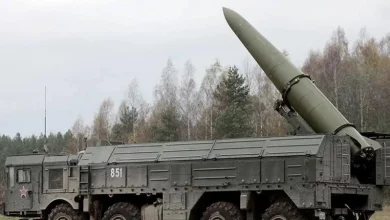China and Taiwan at odds over U.S. Military presence in Taiwan strait

China and Taiwan find themselves in a fresh clash over interpretations of international law, the reading likely to impact how each receives the U.S. military’s presence in the Taiwan Strait.
Beijing claims Taiwan as one of its provinces, while Taipei says the island is already a de facto nation.
Another layer to the cross-strait differences emerged during the weekend after a Bloomberg report said China was privately challenging the legal status of the waters in meetings with the United States, with a view of stopping the now routine transits of American warships.
These otherwise closed-door objections were all but confirmed by Beijing on Monday, when Chinese Foreign Ministry spokesperson Wang Wenbin declared China’s “sovereignty, sovereign rights and jurisdiction over the Taiwan Strait.”
Under the United Nations Convention on the Law of the Sea, a state is granted a “sovereign right” to resources within an exclusive economic zone that extends 200 nautical miles beyond its territorial sea. A state’s “sovereignty,” however, ends after the 12 nautical miles of its territorial sea, while the surface waters of the EEZ are considered international waters—known more formally as the “high seas.”
China’s interpretation, which Wang said was based on both UNCLOS and unspecified Chinese laws, argues against the notion that the Taiwan Strait is part of the high seas.
“It is a false claim when certain countries call the Taiwan Strait ‘international waters’ in order to find a pretext for manipulating issues related to Taiwan and threatening China’s sovereignty and security. China is firmly against this,” he said.
Shipping through the Taiwan Strait is important for China and Taiwan; the waters are also a vital sea line for trade and energy imports to South Korea and Japan.
China’s challenge is aimed directly at the U.S. and its allies, which have sailed military vessels through the Taiwan Strait under the UNCLOS principle of freedom of the seas, and as a regular reminder to Beijing about their interest in preventing a cross-strait conflict.
The U.S. does not take an official position on sovereignty over Taiwan, but insists political differences between Beijing and Taipei must be resolved by peaceful means. The Taiwanese government, while not sharing Washington’s view on sovereignty over the island, would be minded to keep its strongest international backer close to its shores.
Joanne Ou, Taiwan’s Foreign Ministry spokesperson, told reporters that, beyond the island’s territorial waters, Taipei considers the Taiwan Strait to be the high seas and therefore subject to the free-sea principle. China’s assertion about jurisdiction over the Taiwan Strait was a distortion of international law and a “fallacy,” she said on Tuesday.
Taiwan respects any lawful movements of foreign vessels in the Taiwan Strait, “including innocent passage,” Ou said. “We understand and support the U.S.’s freedom of navigation operations and their benefit to promoting regional peace and stability.”





